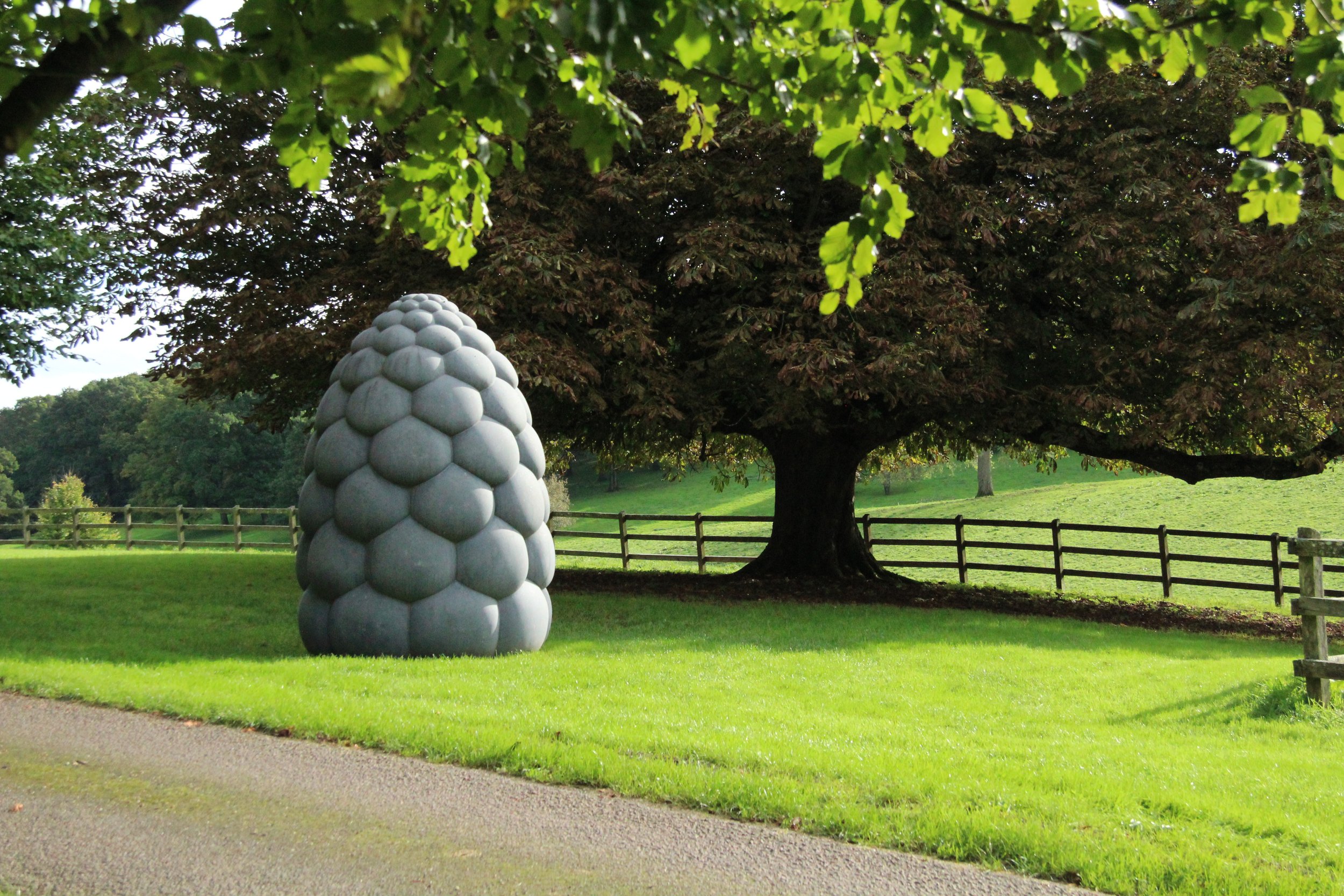WORK OF THE WEEK: Peter Randall-Page
Happy Easter from all of us at Roche Court.
Peter Randall-Page
Phyllotaxus, 2013
Kilkenny limestone
257 x 188 x 188 cm
101 ½ x 74 x 74 in.
“Geometry is the theme on which nature plays her infinite variations, and can be seen as a kind of pattern book on which the most complex and sophisticated structures are based.”
Peter Randall-Page’s practice is informed by the study of natural phenomena, and the dynamic tensions between order and chance. In Phyllotaxus, Fructus and Corpus, sited here at Roche Court, Randall-Page has carved intricate markings and natural geometric patterns onto the surface of huge Kilkenny limestone blocks.
These sculptures sit naturally within the landscape, seeming to emerge from the earth as relics and fossils of the ancient natural world.
Peter Randall-Page
Corpus, 2009, Phyllotaxus, 2013 and Fructus, 2009
Kilkenny limestone
Enquire
Born in 1954, Peter Randall-Page RA studied at Bath Academy of Art from 1973-1977.
He is well known for his numerous large scale commissions, including Give and Take, in Newcastle, which won the 2006 Marsh Award for Public Sculpture; Theme and Variation for the University of Birmingham’s Bramhall Music Building in 2014 and Touchstone, a new commission for Transport for London at Oval Triangle, London in 2018. Major solo exhibitions include a show at the Yorkshire Sculpture Park (2009-10) and at Kloster Schoenthal Sculpture Park, Switzerland (2019). Peter Randall-Page has been awarded Honorary Doctorate of Letters from York St John University in 2009, Exeter University in 2010, and Bath Spa University in 2013. In 2015, he was elected as a Royal Academician.
His work is held internationally in public and private collections including Japan, South Korea, Australia, USA, Germany and the Netherlands, and in the permanent collections of the Tate and the British Museum. Peter Randall-Page lives and works in Devon.
Earlier this month, Peter Randall-Page installed a new work titled Tin Seed at the Eden Project in Cornwall. Cast entirely from sea-foraged Cornish tin, Tin Seed is an adaptation of his sculpture, Seed, which was carved from a 167 tonne piece of Cornish granite. This new cast work is a celebration of our relationship with the natural world.
Peter Randall-Page
Fructus, 2009
Kilkenny limestone
250 x 160 x 160 cm
98 ½ x 63 x 63 in.
Enquire



